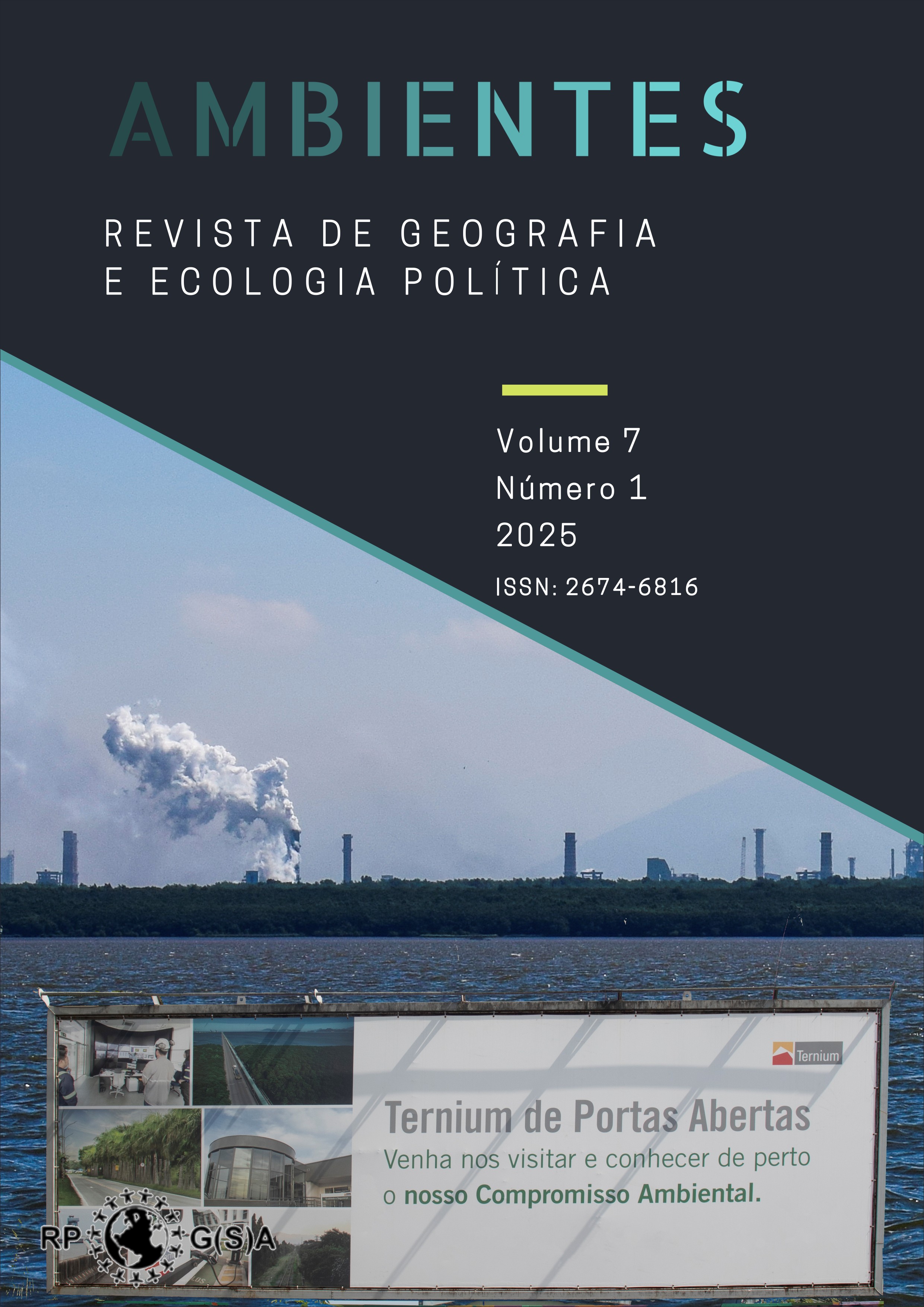Costa Rica in the international moral of decarbonization: Multi-scalar political interactions
DOI:
https://doi.org/10.48075/amb.v7i1.34987Abstract
This article analyzes the construction of an international decarbonization morale and its relationship with projects on a national scale. The central objective of this work was to explore the multi-scale interactions between the international decarbonization morale and its national appropriation, with a case study of Costa Rica and its symbolic construction as an exemplary decarbonization country. To do this, we looked at the discussions surrounding the formulation of Costa Rica's National Decarbonization Policy.
The main findings reveal that decarbonization emerges as the dominant moral response to the climate crisis by focusing on the technical management of greenhouse gases while displacing the need for structural transformations of the capitalist system. Concurrently, Costa Rica instrumentalizes this framework to reinforce its international image as environmentally exemplary state, employing decarbonization as a strategy to position itself in green markets, attract transnational investments, and negotiate geoeconomic advantages.
It is concluded that, although decarbonization offers practical solutions, it also operates as a political discourse that masks underlying economic interests and contributes to perpetuating the systemic dynamics generating the climate crisis. Finally, given the urgency of climate change/crisis, critical reflections on hegemonic responses and the ideological processes that construct socioecological reality are imperative for advancing toward a horizon of social and environmental justice.
Keywords: International morality; decarbonization; geopolitics; consensus; hegemony.
Downloads
Published
How to Cite
Issue
Section
License

This work is licensed under a Creative Commons Attribution-NonCommercial-ShareAlike 4.0 International License.
Aviso de Direito Autoral Creative Commons
Política para Periódicos de Acesso Livre
Autores que publicam nesta revista concordam com os seguintes termos:
1. Autores mantém os direitos autorais e concedem à revista o direito de primeira publicação, com o trabalho simultaneamente licenciado sob a Licença Creative Commons Attribution que permite o compartilhamento do trabalho com reconhecimento da autoria e publicação inicial nesta revista.2. Autores têm autorização para assumir contratos adicionais separadamente, para distribuição não-exclusiva da versão do trabalho publicada nesta revista (ex.: publicar em repositório institucional ou como capítulo de livro), com reconhecimento de autoria e publicação inicial nesta revista.
3. Autores têm permissão e são estimulados a publicar e distribuir seu trabalho online (ex.: em repositórios institucionais ou na sua página pessoal) a qualquer ponto antes ou durante o processo editorial, já que isso pode gerar alterações produtivas, bem como aumentar o impacto e a citação do trabalho publicado (Veja O Efeito do Acesso Livre).
Licença Creative Commons
Esta obra está licenciada com uma Licença Creative Commons Atribuição-NãoComercial-CompartilhaIgual 4.0 Internacional, o que permite compartilhar, copiar, distribuir, exibir, reproduzir, a totalidade ou partes desde que não tenha objetivo comercial e sejam citados os autores e a fonte.


